- Home
- Christie Golden
On Fire’s Wings Page 4
On Fire’s Wings Read online
Page 4
At various points along the rivers, boys clad in short, loose rhias pumped long handles. Kevla narrowed her eyes, puzzled for a moment, then realized that the boys were bringing water from the river inland. Long troughs carried the precious fluid well into the cultivated lands. No wonder the crops did so well, hand-fed water as they were, becoming that assaulting, wonderful green.
As she watched, the sound of voices crying out in alarm jerked her attention back to the waters. One of the flat boats had capsized, and the water frothed violently. Kevla’s heart felt squeezed, and breathing became difficult. Surely, these men knew how to swim, didn’t they? What, then, was the panic about?
She opened her mouth to ask Tahmu when the churning water turned from white to red. Kevla saw, for just an instant, the torso of a man surface, his mouth open and screaming, his arms reaching out of the bloody waters imploringly to his fellows on the shores. Then he was gone.
It seemed as if the dreadful incident was over, and Kevla began to breathe again when there came a quick movement.
Something rose up from the depths. It was gray and shiny, and a crest of sharp spines adorned its monstrous head. Between its teeth it held the corpse of the man Kevla had just seen pleading for aid. The men on the shore rallied, and with many curses flung stones, sticks, anything they could upon the creature.
With a sinuousness that mimicked the river in which it dwelt, the beast submerged, taking its prize with it. This time, when the waters quieted, they remained still. Only the rapidly dissipating crimson tinge of the water and the overturned boat were left to bear testimony to the tragedy.
Now Kevla’s breath returned to her, and she sobbed, just once. She clapped her hands to her mouth immediately, for she had no wish to shame herself in front of the mighty khashim with her weakness. To her surprise, she felt his arm go around her, gentle and steadying.
“The waters give life,” said Tahmu. “They make it possible for me and my Clanspeople to live, and to live well indeed. But the waters are full of dangers as well. I would have warned you of them, but I think, now, there is little need.”
Wordlessly, Kevla shook her head. Her trembling was starting to subside, which was good, and her stomach had decided not to rid itself of the meat pastry she had eaten earlier, which was better. She took a deep, steadying breath. She had seen death before, but that had been beggars stiffening on the streets, not this sudden, violent snuffing out of life.
Think of something else! she thought fiercely, trying not to see in her mind’s eye the gray monster and its human victim.
“Where…but where is the great House?” she asked, her voice quivering only a little.
“Just a few more steps along the path, and you will be able to see it,” said Tahmu. He squeezed Swift with his thighs, and the horse obediently moved forward.
Scarcely had Swift taken twelve paces when another set of miracles came into view. The green fields continued upward, climbing gradually up the side of the hill in a series of levels. Buildings appeared, and courtyards with trees and benches and—Kevla gasped—pools of water that seemed to have a life of their own. Streams of water leaped upward and then splashed down. Almost, it seemed the work of a kuli, not something man-made, but Kevla knew better than to think that a khashim would traffic with such evil beings, even for so beautiful a decoration.
Swift continued forward, and then Kevla saw the jewel in this agricultural crown—the House of Four Waters itself.
“Oh,” she said, softly. The word was a sigh, a prayer.
Every other building Kevla had ever seen was made either of stone or mud. The colors were that of the surrounding desert landscape—yellow, red, brown, or gray. Some people occasionally covered their walls with white plaster, the better to keep out the hot sun. But the House of Four Waters was a riot of colors. It was several houses, really. Each one was larger than any other four houses Kevla had ever seen. The background was white, but they had been painted. Geometric shapes of green, red, black, blue, yellow, orange, purple—every color Kevla had ever seen and some she had no names for. Swirls and dots, sharp angles, gentle waves caught the eye of the viewer and lured the gaze along the lines of the houses. Even the walls that penned in the domestic animals were gaily hued. Kevla admired the spirited horses, the healthy-looking goats and sandcattle, the—
“Oh!” It was a gasp this time. “What are they?”
She had, she hoped, managed to contain most of her shock and ignorance. But the sight of the pale brown creatures grazing in the pen had startled her more than anything she had yet beheld.
They were roughly the size of horses, but built like no horse she had ever seen. Their hind legs were massive, while their forelegs were small, with dainty appendages. As Kevla watched, one reached up toward a tree that hung over into the pen, plucked a fruit from it, and, for all the world like a human, held the food in its forepaws and nibbled at it. A huge, fluffy tail served to shade it completely. Large ears swiveled back and forth as the creature fed.
“They are sa’abahs,” said Tahmu. “I am not surprised that you have never seen one. Even I have only four of them. The Sa’abah Clan demands a high price for them, and only then if they are in the mood for conducting a trade. Most often—” and there was a hint of disappointment in the khashim’s rich voice “—they are eager to fight. It seems they value a horde of five-scores more than food for their people.”
“Sa’abahs,” breathed Kevla, her rapt gaze still on the creatures. “I have heard of them. They can cross the desert on a cupful of water. They can eat anything. Their feet are so broad they can walk across sand without sinking. They—”
“Enough,” chuckled Tahmu. “It is true, they need little water to traverse the desert, but they certainly need more than a cupful. Rare and worth their weight in water indeed they are, but they are beasts, nonetheless, not magical creatures.”
“If the great khashim says so, then so it must be,” replied Kevla, doubt creeping into her voice, “but my eyes tell me otherwise.”
Tahmu laughed aloud at that, then sobered. “Kevla, turn and look at me.”
The girl obeyed. Tahmu’s face was serious.
“You are wise for your age, so I think you will understand. No one must know that your mother was a—did what she did. To all who ask, you must reply that you are a poor orphan I found in the streets of the marketplace.”
Kevla frowned. “But great khashim, I have skills that a lady would value. I know how to dress hair, to apply henna. How will I explain knowing these things?”
Tahmu thought for a moment. “A good point. We will—you will say your mother was a dancer. Not a highly regarded profession, but better than a halaan.”
Kevla considered this. “But even a dancer has a name.”
His eyes were compassionate as he spoke the words that dashed her hopes. “Then you must still be Bai-sha. I am sorry for that; I would have spared you shame where I could. But the story of a dancer is closer to the truth, and a lie that has a seed of truth in it is easier to tell.”
He placed his finger under her chin and tilted her face up. “It is better to be Bai-sha in the House of Four Waters than Bai-sha on a dusty corner, is it not?”
Kevla thought of her mother’s last words to her, of the coolness with which she had sold her only daughter. An ache welled up in her heart, threatening to spill out as tears.
She blinked them back. That life was over.
“What you say is true, khashim,” Kevla said.
“Now. The sun is hot, and I am thirsty. I am not a sa’abah, and I need more than a cupful of water a day. And you do, too. Enough gawking. Hang on tightly to Swift’s mane, Kevla, for I am impatient to be home and in the shade!”
Kevla turned around and obeyed the instructions, lacing her fingers in the silky softness. With a sudden thrill of excitement that banished the lingering shame of Bai-sha and mitigated the pain of parting from her mother, she felt the beast gather itself.
“Hua, hua!” cried Tahmu, strikin
g Swift-Over-Sand on the rump with his hand.
Swift-Over-Sand proved to be Swift-Over-Rocky-Path as well. Kevla couldn’t suppress a squeal of delight as the animal surged forward. Swift lowered his head as his body stretched out and found its stride, shaking his head and gnawing the bit, his gold-tipped tusks catching the sunlight.
Down toward the miracle of greenness and water the horse plunged, taking the path at a confident gallop. The path twisted and turned, revealing the valley’s secrets in greater detail. All at once they were on a flat path, galloping past workers in the fields, who made haste to prostrate themselves as their master passed. Then up again, a gradual incline, past many of the beautifully painted buildings, past the stone corrals that housed the magnificent horses and the unbelievable sa’abahs, in through a huge gate that closed behind them—
—and suddenly, there in the courtyard of the main house of the khashim’s estate, exultation and excitement slowed in Kevla’s heart as Swift-Over-Sand’s pace slowed and clattered to a halt.
Tahmu slipped off the beast. He made no move to help her down. Instead, a servant stepped forward and reached hands up to Kevla.
She ignored the friendly hands and smile of the servant, instead finding her own way off the stamping, snorting animal. She landed hard, but gave no sign of pain, rising from her hands and knees to stand straight and silent.
Tahmu nodded approvingly. “Come with me.”
“Sahlik, I have a new servant for you to train.”
Sahlik did not drop to her knees. Tahmu would not expect it, not with her inflamed joints. She turned slowly around from the cookfire she was tending.
“You,” she said, gesturing to a girl who huddled on the floor, “get the khashim and his new servant some water.”
The girl scurried to obey, presenting a dripping, hollowed-out gourd to her master with a deep bow. He drank, and then handed it to the child who stood beside him.
Sahlik looked at the girl as she drained the dipper. Her heart rose. She glanced from child to khashim, and though her lips didn’t move, Sahlik had a smile of approval in her eyes for Tahmu.
He had gone, as she had urged.
Two days ago, Sahlik, on a rare visit to the market with some of the kitchen servants, had heard a long forgotten name and spotted Kevla on the corner. Few servants now remained at the House of Four Waters who had seen the young Tahmu through that heartbreaking time eleven years past. It had been Sahlik who had given the cold, but ultimately wise, advice that he had to leave Keishla. And it had been Sahlik who had held her young lord in her arms as he wept after the deed had been done.
There had been no mistaking the youthful energy of the young Tahmu in the child’s vigorous dance, nor the sloe eyes of Keishla in her face. Sahlik had known the girl for what she was, and had urged her master to take pity upon her.
A good boy, Tahmu. He listened well.
But no one else must know, not even the girl herself. Sahlik turned her attention to Kevla, her eyes narrowing. Far too thin. Walking slowly over to the child, she examined the new servant the way Tahmu might examine a horse he was planning to purchase. Sahlik opened the girl’s mouth and felt around her teeth and gums. Good. No teeth were loose yet, and Dragon willing, they would not come loose later. Her eyes were clear, her thin arms surprisingly strong with muscle.
“She looks well enough,” Sahlik said, stepping back. “Where did you want her, my lord?”
“Put her in as one of Yeshi’s attendants.”
By the Great Dragon, he was courting trouble. “Are you certain, my lord? Such positions are usually given as rewards for years of service.”
She was speaking, of course, what they both knew. She hoped Tahmu would sense the other, unsaid words.
“Kevla’s mother was a dancer, before her untimely death,” said Tahmu in a conversational tone. Only Sahlik, who knew the man better than nearly anyone, could have caught the undercurrent of tension in the everyday words. This, then, was the story Tahmu and Sahlik would spread.
“Kevla knows many useful skills—hair decorating, henna, massage—things that a woman would appreciate. If she does not work out, there is always another position for her, yes?”
“Certainly,” Sahlik agreed. If Tahmu wanted an easy lot for the child of his blood, then it was not her place to disagree. Yeshi was an unobservant woman. It was possible, perhaps even likely, she would not notice the resemblance. Sahlik would leave such matters up to the discretion—or lack thereof—of the khashim.
She wiped at the perspiration gleaming on her forehead. Even though she wore a light rhia that permitted air to circulate and cool her body, Sahlik found she endured the extreme temperatures less well than she once did.
“It is hot on these old bones,” she said. “I will prepare Kevla myself.”
She grasped the girl’s hand. Without waiting for the khashim’s dismissal, Sahlik led Kevla away.
Kevla followed obediently, showing none of the lively, rather coarse enthusiasm she had displayed the other day in the marketplace. Sahlik was pleased. She led the girl through the kitchen storage house, back out into the bright sunlight, and into another low, ornately decorated building. This one, unlike many of the others, had a wooden door. It was only one story, and much smaller than the other buildings. Torches burned in sconces fastened to the outside walls, even though the day was wiltingly hot. Kevla turned, a question on her lips.
“Why—”
“You’ll see soon enough, child. And it’s not too soon to learn to speak when you are spoken to, and not before.”
Kevla bowed her head meekly. Sahlik noticed that the child’s hair had extremely red highlights in the sun.
“Very good,” approved Sahlik. “Now, open that door, and let’s be about it.”
Kevla hastened to obey, pulling the door open and stepping back to allow Sahlik to enter first. The old woman reached for a torch, and stepped into the darkness.
Cool, thought Kevla. It’s cool in here!
She realized that this building was made not of mud or brick, as the others were, but of stone. She followed the old serving woman inside.
“Close the door behind you.”
Kevla obeyed. Now, the only light came from the flickering torch borne by Sahlik. Kevla kept close to the head servant, uncomfortable in this darkness. The tent in which she had spent all her life had not been able to shut out the light as this building did, and even a moonless night outside had a crowded field of bright, twinkling torch lights to keep her company.
Sahlik moved forward, her steps swift for her age, and certain. Kevla realized that there were stairs ahead that wound down even farther into the darkness.
Sahlik continued, moving steadily downward. Other torches hung on the walls, and these she lit as she passed. Wide-eyed and silent, Kevla followed.
The stairs seemed to wind downward forever. At last, a sound reached Kevla’s ears. It seemed familiar, but amid the echoes she couldn’t be certain. Surely, it was not the gurgle of water that it sounded like. That was to be expected from rivers such as those she had seen earlier, but not here, not at the bottom of a house.
At last the descent ended. Sahlik stepped forward, Kevla at her heels, into a large stone cavern.
Kevla gasped, softly.
It was water.
A spring bubbled up into a large pool of gently moving liquid. Kevla could barely see it in the dim illumination provided by Sahlik’s single torch, but it took only a little light to catch the gleam of the water and reflect it back. A second, smaller pool had a large pump, and several buckets sat beside it. Sahlik sat down on a stone bench, groaning and rubbing her knees.
“It is a long walk for me, and the trip back to the surface will be even longer. But it is always worth it. What do you think, Kevla?”
Almost, there was warmth in her voice. Kevla glanced at the old woman, but in the faint light she couldn’t read Sahlik’s expression.
“Is—did the khashim make these?” she asked, turning her attention
back to the pools.
Sahlik laughed. “No man can create water, child. But yes, a tunnel was dug many years ago between here and the river. It is one of the House’s greatest strengths. We will never run out of water for drinking or bathing.”
“B-bathing?” Kevla’s voice cracked.
“Of course. Did you think I came all this way simply to give you a drink, girl? Take off that dirty rhia. Can’t have a servant to the khashima running around in that mouse-chewed thing.”
Hesitantly, with a sudden bout of shyness, Kevla drew off the garment. Crossing her arms over her chest, she padded over to the larger pool and glanced at Sahlik for confirmation. At the old servant’s nod, Kevla sat down on the smooth stone. She took a deep breath, suddenly filled with a nameless, unreasoning fear, then swung her legs into the water.
It was cool, soft, like a gentle hand caressing her legs. A bath. She, Kevla Bai-sha, was about to take a bath, in the underground spring of the greatest khashim in the land.
She buried her face in her hands and began to sob. She wasn’t sure why, it just seemed that now, at this moment, it was the only thing she could do.
And when suddenly Sahlik was there, her bony shoulder a curious comfort, her gnarled hands soothing Kevla’s hair, Kevla did not think to ask how Sahlik had understood so readily. She merely leaned into the embrace and sobbed her young heart out, her legs, submerged to the knees, splashing the alien water gently.
Chapter Four
Sahlik was glad the girl wept. She knew it was not good to keep powerful emotions locked inside as if in a sealed jar. She herself was no stranger to tears stolen in rare moments alone, although life had been good to her in these later years. A smile curved her lips as she thought, I am perhaps the only woman I know who is happier as an old servant than a young wife.

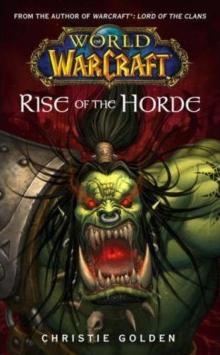 Rise of the Horde
Rise of the Horde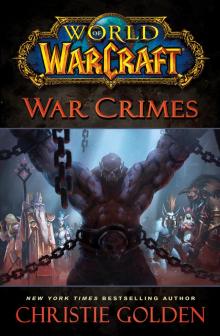 World of Warcraft: War Crimes
World of Warcraft: War Crimes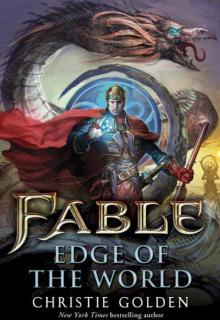 Fable: Edge of the World
Fable: Edge of the World Homecoming
Homecoming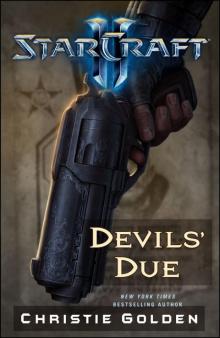 StarCraft II: Devil's Due
StarCraft II: Devil's Due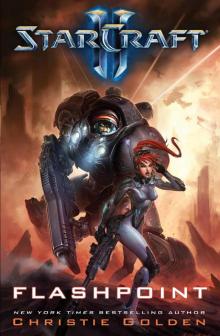 Starcraft II: Flashpoint
Starcraft II: Flashpoint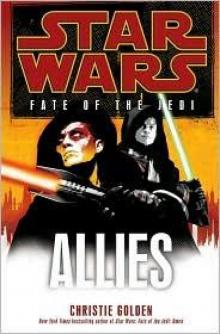 Allies
Allies Shadow Hunters
Shadow Hunters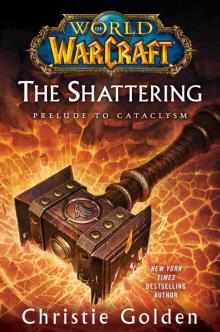 The Shattering: Prelude to Cataclysm wowct-1
The Shattering: Prelude to Cataclysm wowct-1 STAR TREK: VOY - Homecoming, Book Two - The Farther Shore
STAR TREK: VOY - Homecoming, Book Two - The Farther Shore King's Man and Thief
King's Man and Thief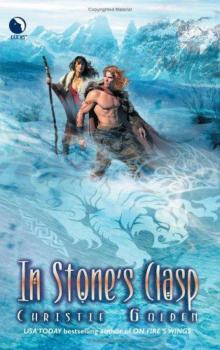 In Stone's Clasp
In Stone's Clasp Jaina Proudmoore: Tides of War
Jaina Proudmoore: Tides of War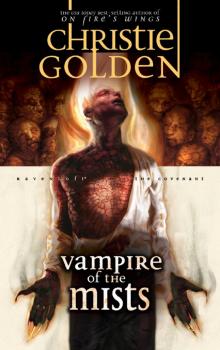 Vampire of the Mists
Vampire of the Mists Star Wars: Fate of the Jedi II: Omen
Star Wars: Fate of the Jedi II: Omen King's man and thief cov-2
King's man and thief cov-2 Star Trek
Star Trek StarCraft: Dark Templar: Twilight
StarCraft: Dark Templar: Twilight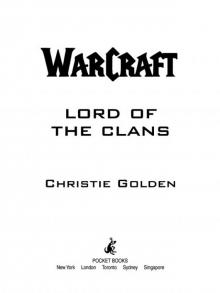 Lord Of The Clans
Lord Of The Clans ARKTIKA.1 (Short Story)
ARKTIKA.1 (Short Story)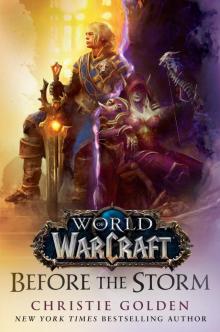 Before the Storm
Before the Storm STAR TREK: VOY - Homecoming, Book One
STAR TREK: VOY - Homecoming, Book One Shadow of Heaven
Shadow of Heaven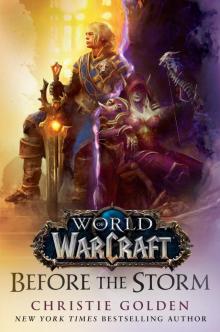 Before the Storm (World of Warcraft)
Before the Storm (World of Warcraft) Warcraft Official Movie Novelization
Warcraft Official Movie Novelization Flashpoint
Flashpoint STAR TREK: The Original Series - The Last Roundup
STAR TREK: The Original Series - The Last Roundup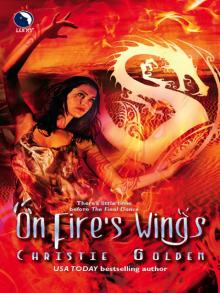 On Fire’s Wings
On Fire’s Wings Spirit Walk, Book One
Spirit Walk, Book One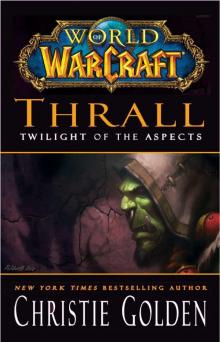 Thrall Twilight of the Aspects
Thrall Twilight of the Aspects Valerian and the City of a Thousand Planets
Valerian and the City of a Thousand Planets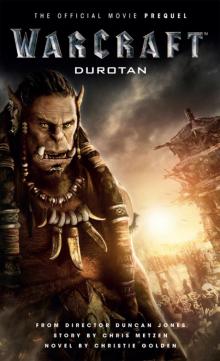 Warcraft
Warcraft Assassin's Creed: Heresy
Assassin's Creed: Heresy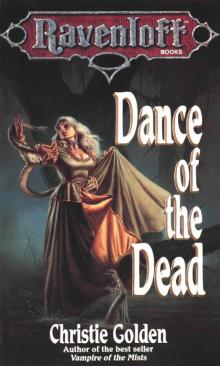 Dance of the Dead
Dance of the Dead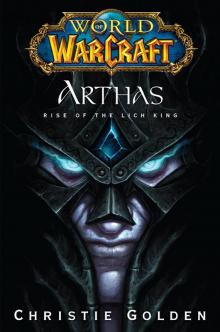 Arthas: Rise of the Lich King wow-6
Arthas: Rise of the Lich King wow-6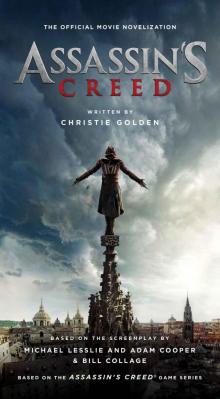 Assassin's Creed: The Official Movie Novelization
Assassin's Creed: The Official Movie Novelization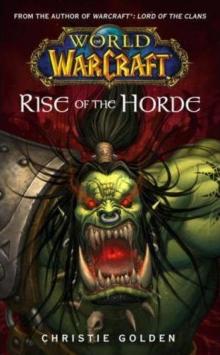 Rise of the Horde wow-2
Rise of the Horde wow-2 Dark Disciple
Dark Disciple Ghost Dance
Ghost Dance The Shattering
The Shattering Spirit Walk, Book Two
Spirit Walk, Book Two Star Wars: Fate of the Jedi: Ascension
Star Wars: Fate of the Jedi: Ascension Star Wars: Fate of the Jedi V: Allies
Star Wars: Fate of the Jedi V: Allies The Enemy Within
The Enemy Within Kindred Spirits
Kindred Spirits The Farther Shore
The Farther Shore Star Trek: Hard Crash (Star Trek: Starfleet Corps of Engineers Book 3)
Star Trek: Hard Crash (Star Trek: Starfleet Corps of Engineers Book 3) Twilight
Twilight